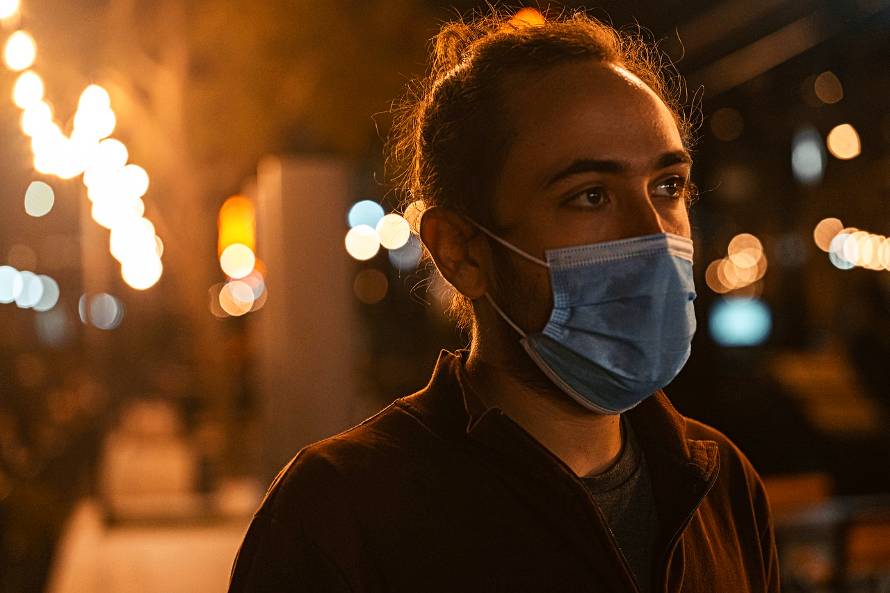Researchers at Brigham and Women’s Hospital have discovered a potential link between persistent SARS-CoV-2 proteins in the blood and long COVID symptoms.
Summary: A new study reveals that people with long COVID symptoms were twice as likely to have SARS-CoV-2 proteins in their blood compared to those without symptoms, suggesting persistent infection as a possible cause for some cases of long COVID.
Estimated reading time: 6 minutes
A groundbreaking study led by researchers at Brigham and Women’s Hospital has uncovered evidence that persistent SARS-CoV-2 infection could be behind some cases of long COVID. The research team found that individuals experiencing long-term symptoms were approximately twice as likely to have viral proteins circulating in their blood compared to those without ongoing symptoms.
Detecting Viral Proteins in Long COVID Patients
The study, published in Clinical Microbiology and Infection, analyzed 1,569 blood samples from 706 individuals who had previously tested positive for COVID-19. Using a highly sensitive test developed by the research team, they searched for whole and partial proteins from the SARS-CoV-2 virus.
Key findings from the study include:
- 43% of participants with long COVID symptoms affecting cardiopulmonary, musculoskeletal, and neurologic systems tested positive for viral proteins within 1 to 14 months after their initial COVID-19 diagnosis.
- Only 21% of those without reported long COVID symptoms tested positive for the same biomarkers during this period.
Dr. Zoe Swank, lead author and postdoctoral research fellow at Brigham and Women’s Hospital, explained the potential implications:
“If we can identify a subset of people who have persistent viral symptoms because of a reservoir of virus in the body, we may be able to treat them with antivirals to alleviate their symptoms.”
Long COVID: A Complex Condition
The study’s findings suggest that persistent infection may explain some, but not all, cases of long COVID. Dr. David Walt, Principal Investigator on the study, highlighted the complexity of the condition:
“This finding suggests there is likely more than one cause of long COVID. For example, another possible cause of long-COVID symptoms could be that the virus harms the immune system, causing immune dysfunction to continue after the virus is cleared.”
Common long COVID symptoms reported in the study included:
- Fatigue
- Brain fog
- Muscle pain
- Joint pain
- Back pain
- Headache
- Sleep disturbance
- Loss of smell or taste
- Gastrointestinal symptoms
Implications for Treatment and Future Research
The discovery of persistent viral proteins in long COVID patients opens up new possibilities for treatment. The research team is currently involved in a national study called RECOVER-VITAL, which is testing whether an antiviral drug can help patients recover from long COVID.
Dr. David C. Goff, director of the Division of Cardiovascular Sciences at the National Heart, Lung, and Blood Institute, emphasized the importance of this research:
“These types of studies are critical to help investigators better understand the mechanisms underlying long COVID — which will help bring us closer to identifying the right targets for treatment.”
Addressing Potential Concerns
While the study provides valuable insights into long COVID, it also raises several questions:
- Why did more than half of patients with wide-ranging long COVID symptoms test negative for persistent viral proteins?
- Could other factors, such as immune system dysfunction, contribute to long COVID symptoms?
- Are certain populations more susceptible to persistent infection?
To address these concerns, the research team is conducting follow-up studies with larger, more diverse patient groups. These studies aim to provide a more comprehensive understanding of long COVID and its potential causes.
It’s important to note that the concept of a virus persisting in the body and causing ongoing symptoms is not unique to COVID-19. Similar post-acute syndromes have been observed with other viruses, such as Ebola and Zika.
As research continues, the findings from this study offer hope for improved diagnosis and treatment options for long COVID patients. By identifying those with persistent viral proteins, healthcare providers may be able to target treatments more effectively, potentially alleviating symptoms for a significant number of long COVID sufferers.
Quiz: Test Your Understanding
- What percentage of participants with long COVID symptoms affecting multiple body systems tested positive for viral proteins? a) 21% b) 43% c) 50% d) 100%
- What type of test did researchers use to detect SARS-CoV-2 proteins in blood samples? a) PCR test b) Rapid antigen test c) Simoa ultrasensitive test d) Antibody test
- According to the study, what is a possible alternative cause of long COVID symptoms besides persistent infection? a) Genetic predisposition b) Immune system dysfunction c) Environmental factors d) Pre-existing health conditions
Answers:
- b) 43%
- c) Simoa ultrasensitive test
- b) Immune system dysfunction
Further Reading
- Clinical Microbiology and Infection – Full Study
- National Institutes of Health – RECOVER Initiative
- Brigham and Women’s Hospital – Department of Pathology
Glossary of Terms
- Long COVID: Persistent symptoms experienced by some individuals weeks or months after initial SARS-CoV-2 infection.
- SARS-CoV-2: The virus responsible for causing COVID-19.
- Simoa: An ultrasensitive test for detecting single molecules, used in this study to identify viral proteins.
- Antigen: A substance (usually a protein) that triggers an immune response in the body.
- Post-acute sequelae: Lingering effects or complications following an acute illness.
- Biomarker: A measurable indicator of a biological state or condition.
Enjoy this story? Get our newsletter! https://scienceblog.substack.com/


